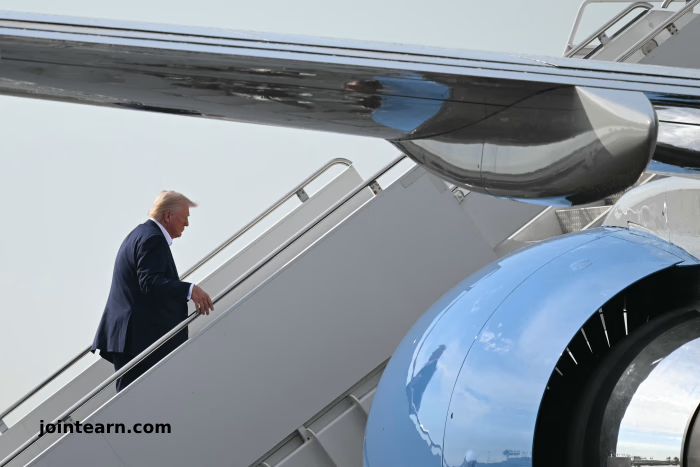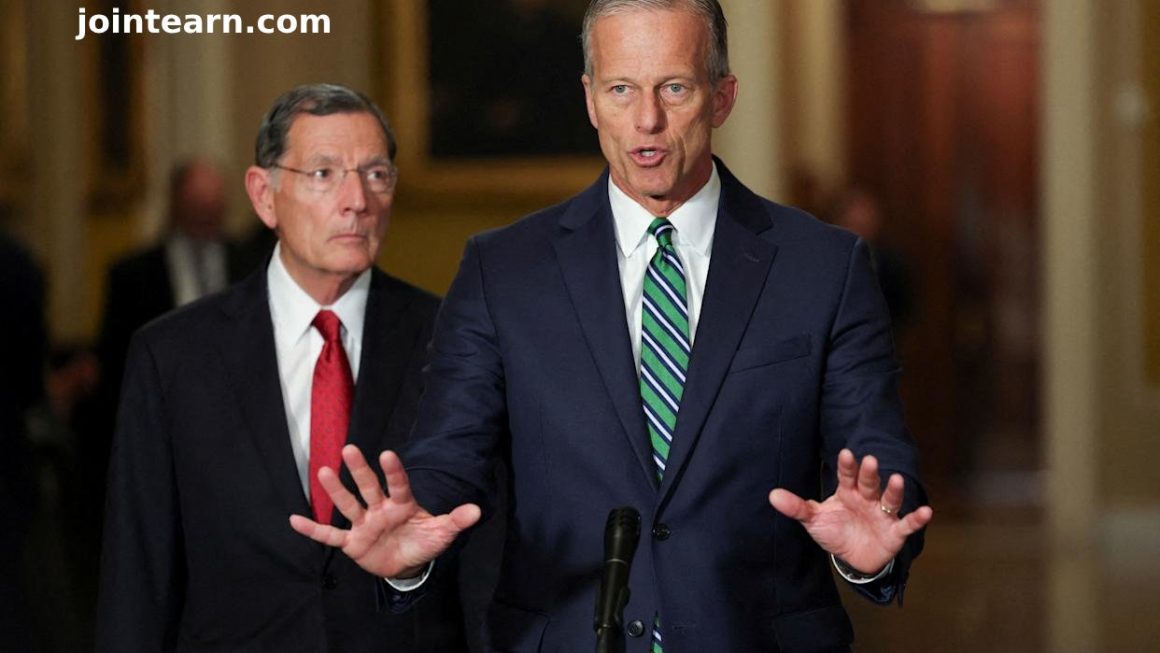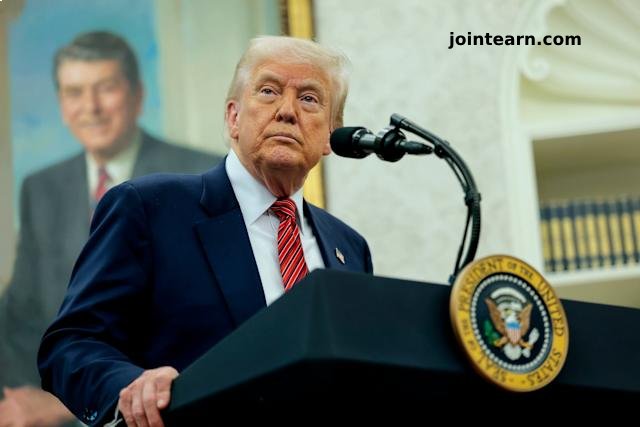Reports have surfaced that U.S. President Donald Trump is set to receive a luxury Boeing 747-8 jet from the Qatari royal family for temporary use as the new Air Force One. However, the news has raised significant legal and ethical concerns, especially under the Foreign Emoluments Clause of the U.S. Constitution.
The Controversial Gift
The Boeing 747-8, which is valued at around $400 million, is reportedly being offered as a gift to the United States for use as Air Force One, with plans for it to be donated to Trump’s presidential library after his term ends. The deal, if finalized, would mark an unprecedented gesture, according to legal experts.
Jessica Levinson, a law professor at Loyola Law School, pointed out the concerns surrounding the foreign emoluments clause, which prohibits government officials from accepting gifts or benefits from foreign governments without Congressional consent. “A gift of this size from a foreign government is unprecedented in our nation’s history,” she said, raising alarm about the constitutional implications.
Legal and Ethical Implications
Legal experts, including Richard Painter, former chief ethics lawyer in the George W. Bush administration, argue that the transfer of such a significant gift without Congress’ approval could violate the foreign emoluments clause. Painter also stressed that the fact that the plane would eventually be donated to Trump’s presidential library does not negate the potential violation. “This definitely violates the foreign emoluments clause unless Congress gives consent,” Painter stated.
In addition to the constitutional concerns, Levinson also highlighted that federal statutes such as the Foreign Gifts and Decorations Act and anti-bribery laws might come into play. The size of the gift raises questions about potential conflicts of interest or corruption, even if the gift is not financially compensating Trump directly.
Qatar’s Official Response
Qatar’s media attaché to the U.S., Ali Al-Ansari, stated that the transfer of the Boeing 747-8 is “currently under consideration” and remains under review by the respective legal departments. No final decision has been made, but the move is being closely monitored by both U.S. and international observers.
Political Reactions and Criticism
The news has sparked backlash across the political spectrum. Senate Minority Leader Chuck Schumer (D-NY) criticized the gesture, stating that it contradicts the “America First” narrative and calls into question foreign influence over the U.S. government. “Nothing says ‘America First’ like Air Force One, brought to you by Qatar,” Schumer wrote, branding the gift as an example of foreign bribery and influence.
Democratic Representatives Adam Schiff and Jamie Raskin have also voiced their concerns, citing the foreign emoluments clause and emphasizing that Trump must seek Congressional approval to accept such a valuable gift. Raskin took to social media, saying, “Trump must seek Congress’ consent to take this $300 million gift from Qatar. The Constitution is perfectly clear: no present ‘of any kind whatever’ from a foreign state without Congressional permission.”
Even figures with closer ties to Trump, such as far-right activist Laura Loomer, expressed their disappointment with the potential gift. “This is really going to be such a stain on the admin if this is true,” Loomer wrote, despite her strong support for the president.
Air Force One Delays and Boeing’s Role
The news of the luxury jet comes amid ongoing delays in the production of the new Air Force One planes by Boeing, which has faced significant budget overruns and scheduling setbacks. The initial delivery of the new jets, first expected in 2024, has now been pushed back to 2027 or 2028, leading to speculation that Qatar’s offer might be a temporary solution.
While Trump has pressured Boeing to expedite the delivery of the new presidential planes, the gift from Qatar has added another layer of complexity to the ongoing debate over the future of Air Force One.
Conclusion: A Gift with Legal and Ethical Challenges
The proposal for Qatar to provide a luxury jet as a temporary replacement for Air Force One raises serious questions under U.S. law, particularly concerning the foreign emoluments clause. While the gift has been framed as a gesture of goodwill from Qatar, its scale and potential implications for U.S. governance have sparked widespread criticism and legal scrutiny.
As this matter develops, legal experts, lawmakers, and the public will likely continue to debate whether the gift crosses constitutional lines or whether it should be approved by Congress.












